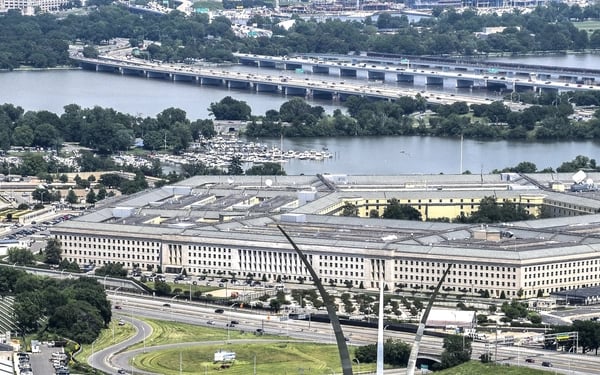House Passes Annual Defense Authorization Bill With Strong Bipartisan Support

WASHINGTON — The House on Thursday afternoon passed the National Defense Authorization Act, sending the $847 billion, 4,000-page measure on to the Senate for consideration before the end-of-year deadline.
After months of negotiation, the annual defense authorization bill passed in a bipartisan vote of 350-80.
The bill is one of the few must-pass pieces of legislation Congress considers each year and Thursday’s vote marked the 62nd consecutive fiscal year the defense authorization was approved by the House.
As described by the Congressional Research Service, the act provides authorization of appropriations for the Department of Defense, nuclear weapons programs of the Department of Energy, and other defense-related activities.
This year, for instance, it includes an $817 billion top line for the Defense Department and about $30 billion to fund nuclear activities in the Energy Department.
In addition to serving as an authorization of appropriations, the NDAA also establishes defense policies and restrictions, and addresses organizational administrative matters related to the DOD.
Unlike an appropriations bill, however, the NDAA does not provide budget authority for government activities.
Nevertheless, historically it has provided a fairly reliable indicator of congressional sentiment on subsequent appropriations for particular programs.
This year’s bill was approved under suspension of the rules, a House procedure that streamlines consideration of a measure with wide support by prohibiting floor amendments, limiting debate to 40 minutes and requiring a two-thirds majority for passage.
This year’s bill includes a 4.6% pay raise for both service members and the agency’s civilian workforce, a number of new weapons programs and equipment upgrades, and new programs and personnel policies.
In a statement issued after the vote, Rep. Adam Smith, D-Wash., chairman of the House Armed Services Committee, said, “Each year, the annual defense bill provides an opportunity for Congress to steer our national security priorities and deliver meaningful policy reforms that benefit service members, their families and communities across the United States.
“This year’s defense bill includes important provisions to support our service members and their families, advance cutting-edge research and development, and invest in our global network of allies and partnerships to tackle the biggest challenges around the world,” he said.
“In the many months of negotiations and deliberations it took to craft this legislation, there were compromises made to get this bill across the finish line,” Smith continued. “In the compromise, we did not get everything we want, but we secured significant wins that are important to Democratic national security priorities.
“Now more than ever — at a time when global democracy is under attack and the rules-based international order is being threatened — we need a strong national security and defense strategy, and this bill helps us deliver on that front,” he said.
House Majority Leader Steny Hoyer, D-Md., said, crucially, this year’s bill bolsters the United States’ ability to counter the strategic challenges posed by China, and it reaffirms the nation’s support to the people of Ukraine as they continue to resist Russia’s unprovoked invasion.
“Additionally, this legislation will strengthen our bonds with key allies in [the North Atlantic Treaty Organization] and throughout the world,” Hoyer said. “Not only do these alliances help ensure our safety, they also help protect the supply chains upon which our economy depends.
“Although this NDAA required much time and negotiation,” he added, “I am glad Democrats and Republicans were able to come together to pass it before the end of the Congress — just as we have done in past years.”
In a concession to Republicans, the NDAA passed by the House includes language that repeals the COVID-19 vaccine mandate for U.S. service members, a mandate that members like Rep. Elise Stefanik, R-N.Y., a senior member of the House Armed Services Committee, contend has “weakened our military recruitment and impaired our military ranks.”
The inclusion of the provision surprised both the White House and the Pentagon, who had spoken out against rescinding the policy, which had been in place since August 2021.
Although House negotiators reached agreement on the NDAA Tuesday night, the hours leading up to the final vote were not without their drama.
At virtually the 11th hour on Wednesday, the day the House vote was expected, the Congressional Black Caucus demanded a simultaneous vote on the John R. Lewis Voting Rights Advancement Act, a measure intended to restore and revitalize the Voting Rights Act of 1965.
The House passed the bill last year, but it died in the Senate, never coming up for a vote. The caucus hoped linking it with the NDAA would finally force a vote in the upper chamber.
Instead House leaders opted to delay the vote and hold it under a suspension of the rules.
Dan can be reached at [email protected] and @DanMcCue






















